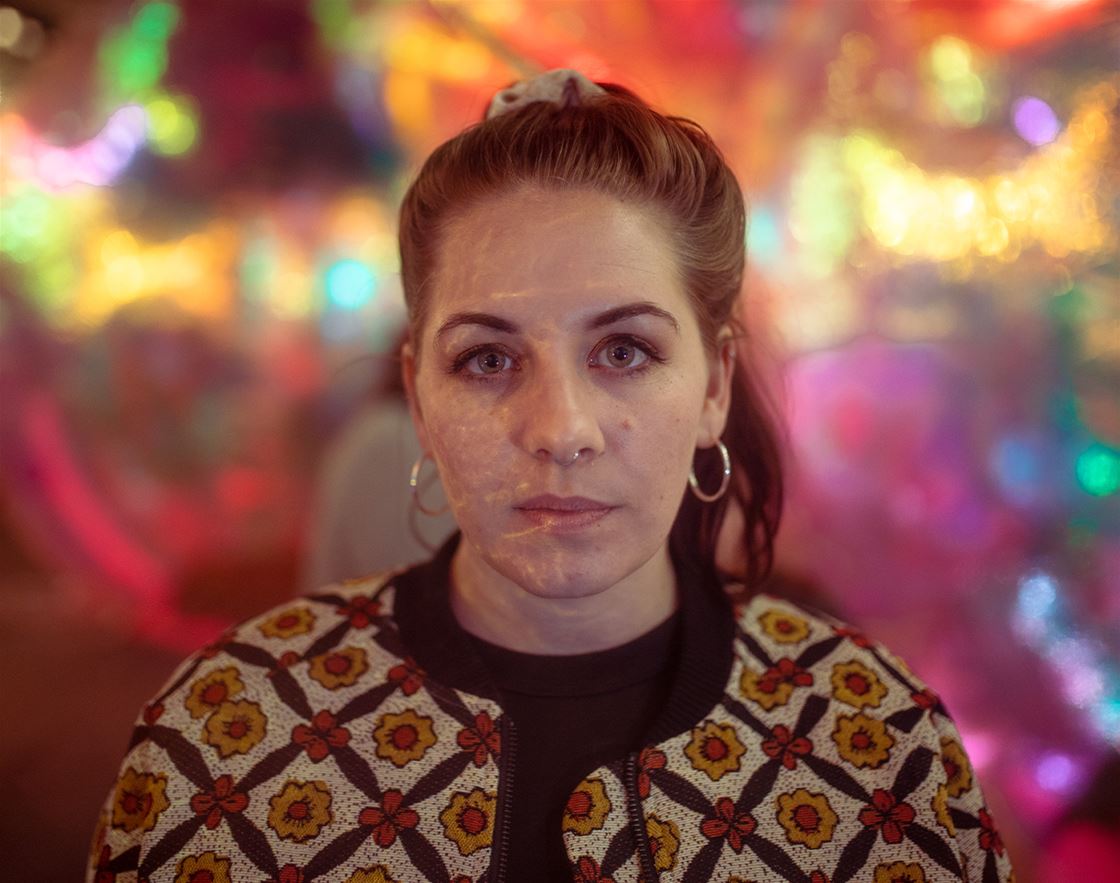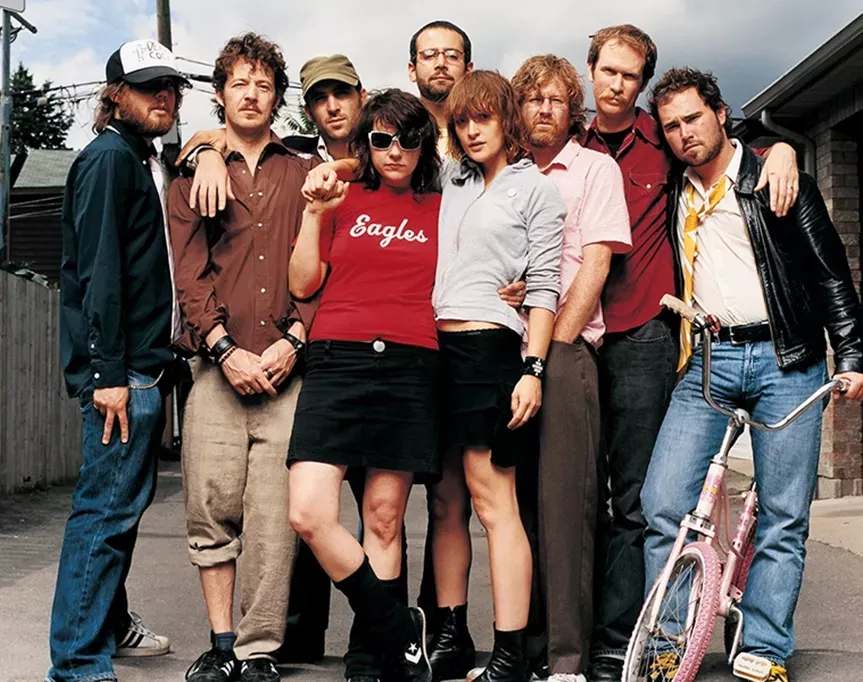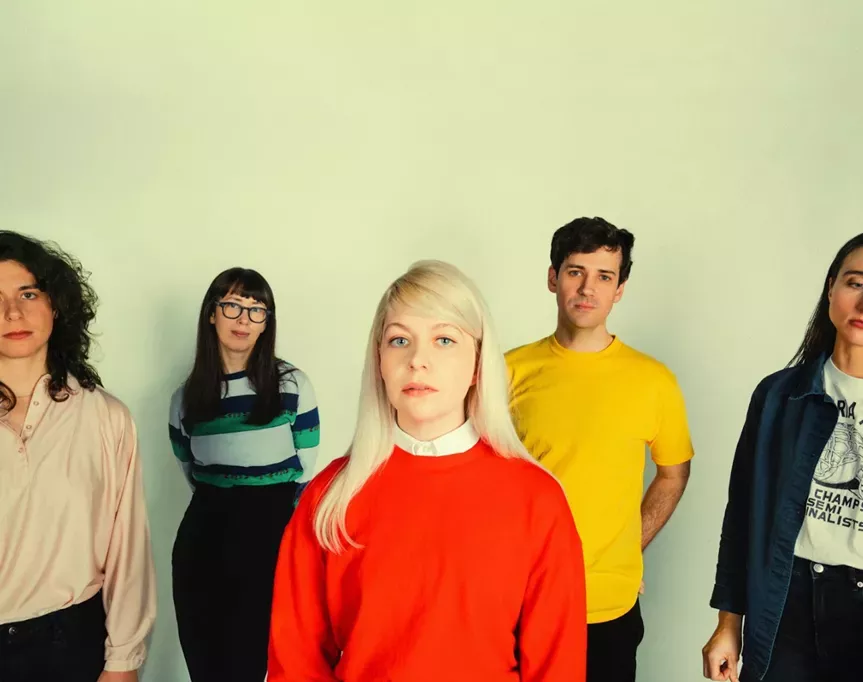tunesday - tanaya harper interview
The Perth singer says she found her sound in her new album.
You may recognise Perth lass Tanaya Harper as the guitarist in indie-rock outfit Bells Rapids and the bassist in indie-pop trio Ghost Care. Well, the talented lady is also killing it as a solo artist, and has recently released her moody third EP, Montreal. Here, we find out what the album is all about.
Tell us about your musical journey. I was obsessed with singing as a young kid – I wanted to be a popstar. I discovered that you can study singing at the end of high school, which blew my mind, so I went to WAAPA and studied contemporary vocals. I tried my hand at songwriting, too, but I had a lot of anxiety around music, so I studied other things. I found my way back to music when I was 25 and I haven’t looked back since! I’m just about to turn 30 and I feel like music continues to evolve as a beautiful necessity in my life.
Do you have any songwriting rituals? I activate airplane mode on my phone and I have to be completely and utterly alone. I usually have a cup of black coffee or tea with me and I generally only write really early in the morning or really late at night.
How did your experience of living with bipolar disorder influence the EP? Montreal is less mental health-oriented and more crumbling-relationship-oriented. Having said that, the lyricism on this EP tends to explore the impact of life experiences on my patterns of thinking and how I’m going to successfully navigate situations so that I can continue to learn and grow through difficult times.
You’ve said that Montreal explores a six-month period of a relationship. What made you decide to write about that? I didn’t consciously do that, it just seemed to be what my spirit needed to write about at that time. I’m really interested in psychology and I’m drawn to writing about human connection and intimacy; how it works and how complicated it can be when two people come together, so that’s what this EP ended up being about.
Do you have a favourite track on the EP? The title track, “Montreal”. I’m very proud of this song and I think I’ve finally found my stride in this track as an indication of the sonic direction I’ll be moving towards in the future. I particularly love the production quality on my voice that Dave Parkin captured, and the sadness of the guitar line Beau Torrance came up with.
What would you be doing if you hadn’t gone down the musical path? When I was younger and my bipolar was undiagnosed, I would jump between courses like crazy. My parents must have been so exhausted by my daily change of life plans. Now that I’m a lot more stable, I’m studying enrolled nursing and I really love it. Deep down, I think my dream job would be an outdoor recreation teacher, or as one of my friends likes to say, a "professional camper".
Who is your dream artist to collaborate with? Thom Yorke! His vocal melodies are so effortless and emotive. In my earlier songwriting I was very inspired by his choice of notes and use of falsetto, like in “You And Whose Army?” and “All I Need”.
If you could move to any city in the world, where would you go? Montreal. It’s silly really, but ever since I was 19 and read about Montreal in a Lonely Planet I’ve always wanted to go there. It’s French-speaking and they have an eclectic music scene – what’s not to love? I might start saving now so I can go live there for a month and write songs in a few years.
What’s next for you? I’m writing an album! I’m so excited to explore new kinds of instrumentation that I haven’t ventured into yet, like brass, strings and piano. Emily Haines (from Emily Haines & The Soft Skeleton) is one of my all-time favourite musicians and I’ve always wanted to give that kind of songwriting a go. At this point I know the album will continue to centre around the theme of personal growth which has been challenged and enhanced by interpersonal struggles.
Any advice for young songwriters? Be nice to yourself! Often it takes 10 not-so-great songs before a winner comes along. Keep trying and working at it. Listen to music from all eras and genres. Lastly, longevity will be more achievable if you write music because you enjoy doing it, not because you’re aiming for fame or recognition.














.jpg&q=80&w=316&c=1&s=1)













.jpg&q=80&w=316&c=1&s=1)










